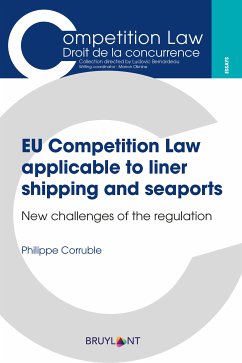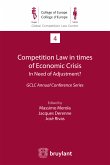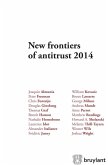Twelve Asian ports, eight of which are Chinese, are now among the top fifteen in the world. At the same time, Chinese interests, supported by public authorities and resources, are taking control of terminals and port companies in Europe, as part of the geopolitical project of the New Silk Roads. This economic and industrial context is emblematic of the challenges facing European competition law, which has so far accompanied rather than controlled these transformations. European competition rules will have to be mobilized in a global context, alongside the new rules on the control of foreign direct investment. This study takes stock of the new regulatory challenges in this sector of prime importance for the Union.
Dieser Download kann aus rechtlichen Gründen nur mit Rechnungsadresse in A, B, CY, D, EW, E, FIN, F, GR, IRL, I, L, M, NL, P, SLO, SK ausgeliefert werden.









